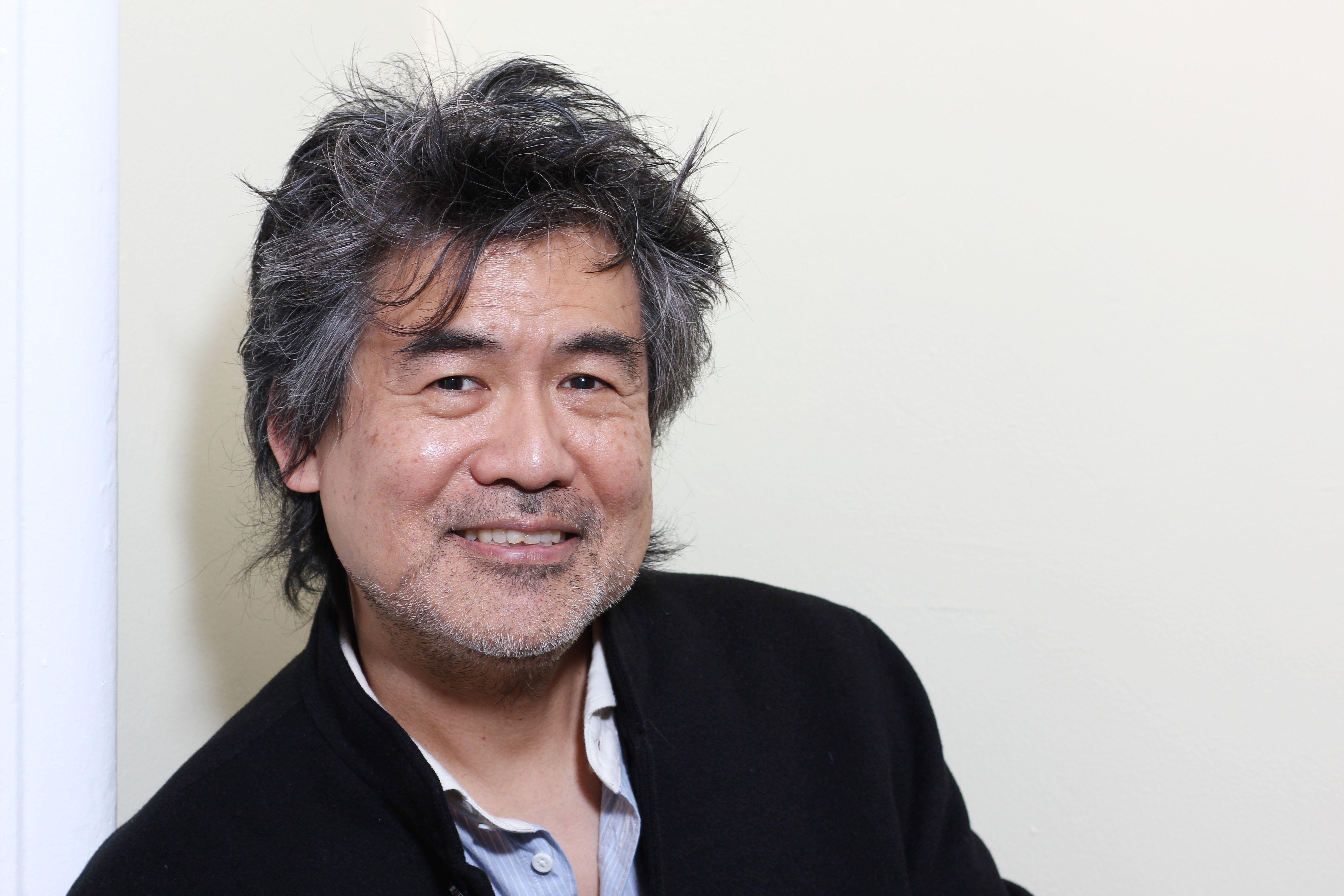
David Henry Hwang
David Henry Hwang (born August 11, 1957) is an American playwright, librettist, screenwriter, and theater professor at Columbia University in New York City. He has won three Obie Awards for his plays FOB, Golden Child, and Yellow Face. Three of his works (M. Butterfly, Yellow Face, and Soft Power) have been finalists for the Pulitzer Prize for Drama.
Not to be confused with David Huang.
David Henry Hwang
August 11, 1957
Los Angeles, California, U.S.
Playwright, screenwriter, television writer, librettist, lyricist
1980–present
Drama
Asian-American Identity
Gender Politics
Contemporary Drama
-
Ophelia Y. M. Chong(m. 1985; div. 1989)
2
黃哲倫
黄哲伦
Huáng Zhélún
Huáng Zhélún
Hwang Jerluen
Huang Chelun
Wong4 Zit3leon4
Early life[edit]
He was born in 1957 in Los Angeles, California, to Henry Yuan Hwang, the founder of Far East National Bank,[1] and Dorothy Hwang, a piano teacher. The oldest of three children, he has two younger sisters. He received a bachelor's degree in English from Stanford University in 1979 and attended the Yale School of Drama between 1980 and 1981, taking literature classes.[2] He left once workshopping of new plays began, since he already had a play being produced in New York. His first play was produced at the Okada House dormitory (named Junipero House at the time) at Stanford University after he briefly studied playwriting with Sam Shepard and María Irene Fornés.[3] In summer 1978, he studied playwriting with Sam Shepard and attended Padua Hills Playwrights Festival, both of which led him to write his first plays such as FOB.[4]
Honors/recognition[edit]
Hwang has been awarded numerous grants, including fellowships from the National Endowment for the Arts, the Guggenheim[42] and Rockefeller Foundations, the New York State Council on the Arts, and the Pew Charitable Trusts. He has been honored with awards from the Asian American Legal Defense and Education Fund,[43] the Association for Asian Pacific American Artists, the Museum of Chinese in the Americas, the East West Players, the Organization of Chinese Americans, the Media Action Network for Asian Americans, the Center for Migration Studies, the Asian American Resource Workshop, the China Institute, and the New York Foundation for the Arts. In 1998, the nation's oldest Asian American theatre company, the East West Players, christened its new mainstage The David Henry Hwang Theatre. Hwang was featured in an autobiographical series by Boise State University with a summary of his early work, as part of the Western Writers Series,[44] written by Douglas Street. In 2011, Hwang received the PEN/Laura Pels International Foundation for Theater Award as a Grand Master of American Theater.[45] In 2012, he was awarded the William Inge Award for Distinguished Achievement in the American Theatre,[46] the Asia Society Cultural Achievement Award, the China Institute Blue Cloud Award,[47] and the Steinberg Distinguished Playwright Award.[48] In 2014, he received the Doris Duke Artist Award. In 2015, he received the 2015 ISPA Distinguished Artist Award.[49]
Mr. Hwang sits on the boards of the Dramatists Guild, Young Playwrights Inc., and the Museum Of Chinese in the Americas (MOCA). He conducts interviews on arts-related topics for the national PBS cable television show Asian America. From 1994 to 2001, he served by appointment of President Bill Clinton on the President's Committee on the Arts and the Humanities.[50]
Hwang holds honorary degrees from Columbia College Chicago, the American Conservatory Theater, Lehigh University, University of Southern California and State University of New York at Purchase.
In 2012, Hwang was named a Fellow of United States Artists.[51]
In 2015, Hwang was named a Ford Foundation Art of Change Fellow.[52]
In 2018, Hwang earned induction into the American Theater Hall of Fame.[53]
Personal life[edit]
Hwang was married to Ophelia Chong from 1985 until their divorce in 1989.[54][55] In 1993, he married actress Kathryn Layng. They have two children together.[56][57]
In November 2015, Hwang was the victim of a stabbing near his home in Fort Greene, Brooklyn. The assailant stabbed Hwang in the neck, severing his vertebral artery, before running from the scene. Hwang was seriously injured and underwent surgery before being discharged from the hospital. The attack appeared to be random, as nothing was taken; the assailant was never found. Hwang wrote about the experience in The New York Times.[58][59] The stabbing also inspired a semi-autobiographical portion of Soft Power, in which the lead character, also named David Henry Hwang, is the victim of a random stabbing.